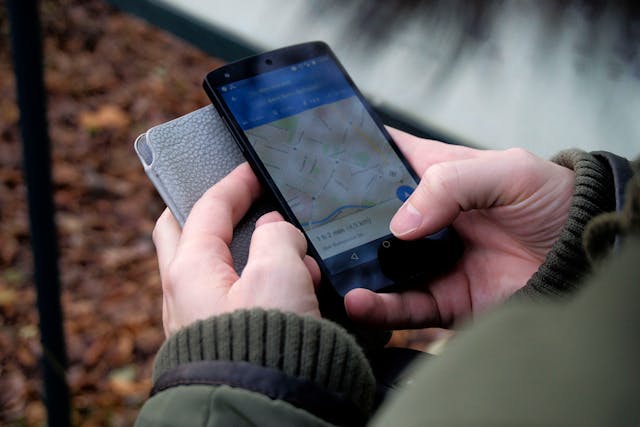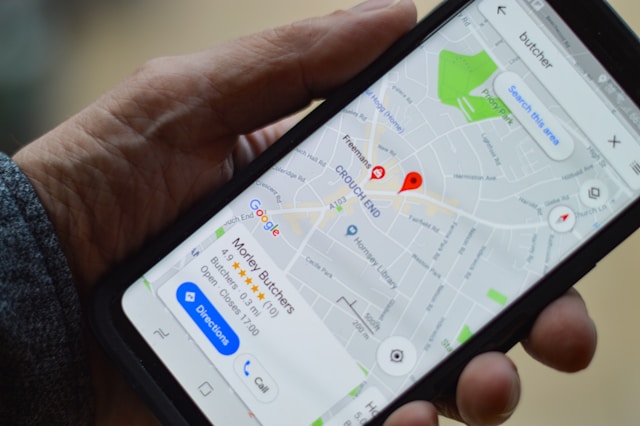It’s important to consider the Google Analytics location accuracy before adding it to your marketing or website infrastructure. Otherwise, you may get the wrong data and draw the wrong conclusions.
In this article, we’ll shed some light on why your Google Analytics location data is not always accurate. This means you must take it with a grain of salt when looking at location reports. So, read on to learn everything you need to know!

Table of Contents
How Accurate Is Google Analytics (GA)?
Do you want to know how accurate is Google Analytics? Google Analytics is one of the most powerful and comprehensive tools for tracking website traffic and user behavior. However, Google Analytics accuracy can vary based on several factors, which are as follows:
- Tracking code implementation: Ensure you place the Google Analytics tracking code correctly on all pages of your website. That’s because missing or incorrectly placed code can lead to incomplete data. Additionally, avoid using multiple GA tracking codes unless necessary since this can lead to data duplication or conflicts.
- Tag configuration: Using a tag management system like Google Tag Manager can simplify managing and deploying tags. Also, properly configuring custom events and goals ensures that you track specific user interactions accurately.
- Data processing latency: There can be delays in data processing. This is especially true for large accounts, as real-time data may not always align with historical reports.
- Browser and ad blockers: Some users may have browser settings or ad blockers that prevent the GA script from running. This leads to the underreporting of traffic and interactions.
- Site speed and reliability: Slow page loads or server downtime can affect the tracking code’s ability to send data to GA.
- Data sampling: Google Analytics may sample data when querying large datasets, especially in the free version. This can affect the accuracy of reports. Hence, use shorter date ranges or create smaller segments to reduce sampling.

Is Google Analytics Accurate Enough for Businesses?
Yes, Google Analytics is accurate enough for businesses because it’s an industry-leading software solution. However, when wondering is Google Analytics accurate, you’ll need to consider the technology. This includes GPS tracking, WiFi, cellular, and IP tracking.
Businesses require accurate location data to avoid wasting money on users who are not relevant. This might be users who are outside of the typical range when visiting their physical location.
Therefore, you need to use the most accurate technology to track the location of your target audience.
Why Google Analytics Is Not Accurate: Top Considerations
Are you wondering why Google Analytics is not accurate for geolocation data?
Google Analytics is widely used for tracking website and user behavior, but its accuracy for geolocation data can be less than perfect.
Here are the factors that limit the accuracy of location data:
- IP address limitations: Many users share IP addresses through corporate networks, VPNs, or internet service providers. This can lead to misidentification of a user’s true location. Furthermore, users on mobile networks often appear to be in the location of the ISP’s data center rather than their actual geographical location.
- Proxy servers and VPNs: Users who use proxy servers or VPNs can mask their actual location, which leads GA to record the location of the proxy or VPN server instead. Is your location data unreliable? Then this might be the top reason why this is happening.
- IP geolocation databases: GA uses third-party IP geolocation databases, which are not always up-to-date or accurate. These databases can have errors, which is especially true for smaller regions or countries with rapidly changing infrastructure.
- Device-specific issues: Mobile devices frequently change locations and IP addresses as users move. Therefore, GA may not always capture the most recent location accurately. Furthermore, users may disable location services on their devices. This leads to reliance solely on IP-based geolocation, which is less accurate.
- Country-level accuracy: GA tends to be more accurate at the country or region level than at the city or town level due to the broader data points available.
- Non-human traffic: Bots and web crawlers can distort geolocation data. While GA tries to filter out known bots, new or unidentified bots can still be visible, altering the results significantly.

Does Google Analytics Collect IP Addresses?
Google Analytics does not directly collect or store the full IP addresses of users in a way that makes them accessible to you. Instead, it uses IP addresses to derive geolocation data and then masks the IP address to comply with privacy regulations like GDPR.
Understanding does Google Analytics collect IP addresses helps you understand what customer data you gather.
4 Advantages of Accurate Location Tracking Data
Now, let’s consider four reasons you may want to invest in accurate customer location tracking software.
You’ll see that attempting to increase the accuracy of your operation can have significant effects on your bottom line.
1. Competitive Advantage
You may get a competitive advantage over businesses who are using inaccurate customer location data. Also, offering accurate location-based services and features can differentiate a business from competitors and attract tech-savvy customers.
Furthermore, businesses that provide seamless and personalized location-based experiences are more likely to build strong customer loyalty and satisfaction.

2. Enhanced Marketing and Advertising
Accurate location data allows businesses to create highly targeted marketing campaigns. Businesses can tailor their messages by understanding the location of customers. This includes specific regions, cities, or even neighborhoods.
You can also use geofencing, a technique that enables businesses to send promotions or notifications to customers when they enter a specific geographic area. This drives foot traffic to physical stores or events.
Finally, businesses can deliver more relevant content to customers based on their location, increasing engagement and conversion rates. Therefore, your marketing return on investment can improve.
3. Better Data Analysis and Insights
Businesses can gain deeper insights into customer behavior patterns, such as preferred shopping locations and peak times. This enables better strategic planning for your business.
Furthermore, location data can help identify emerging markets or underserved areas, which informs decisions about expansion or new store openings.
4. Higher-Quality Customer Relationship Management (CRM)
More accurate location data can lead to better customer relationship management. Here are the top ways this can lead to improvements:
- Customer profiling: Location data enriches customer profiles, which enables more personalized interactions and tailored offerings.
- Loyalty programs: Accurate location-based data can enhance loyalty programs by offering location-specific rewards and incentives. This increases customer engagement and retention.
- Event planning: For events or promotions, businesses can target customers close by. This increases the likelihood of attendance and participation.

Google Analytics Location Accuracy Can Be Improved
Google Analytics location data accuracy is not optimal when focusing on specific streets and neighborhoods. This is also the case with Google Analytics 4, which is the updated version of the software.
Once you appreciate the limitations of Google Analytics location accuracy, you can decide if it’s the right choice for you. However, opting for a more accurate way to track the location of your customers can lead to more sales.
Are you struggling to find a service that offers accurate geolocation data? Then, consider geoPlugin, one of the most accurate location tracking toolsets. We can accurately track users based on their IP address for various use cases.
So what are you waiting for? Try geoPlugin right now to get accurate location data!












